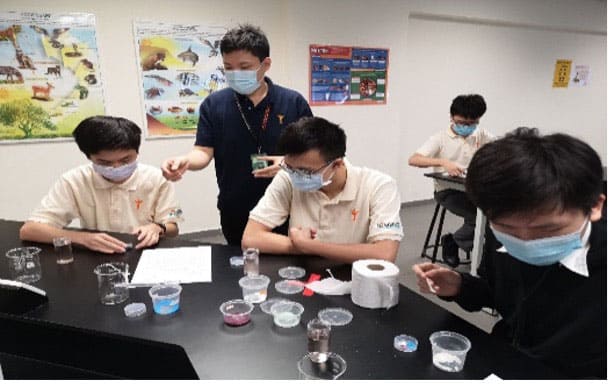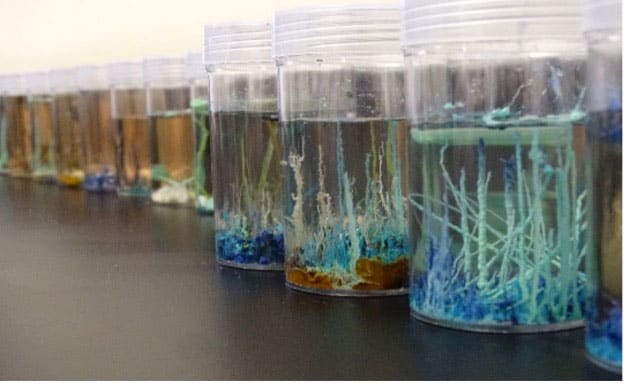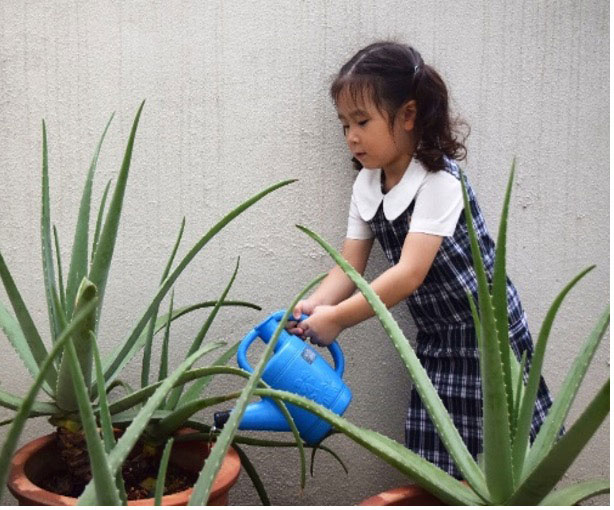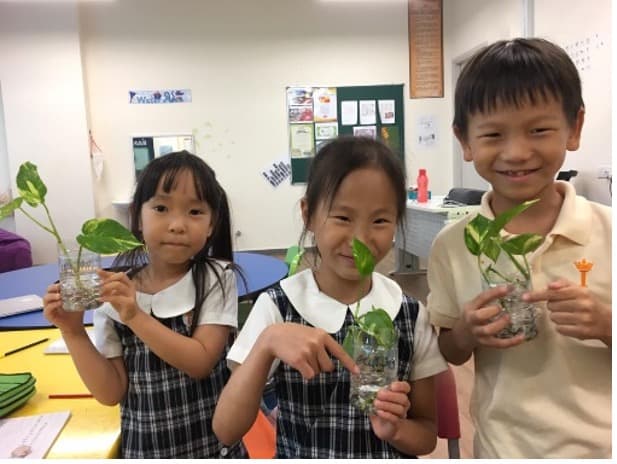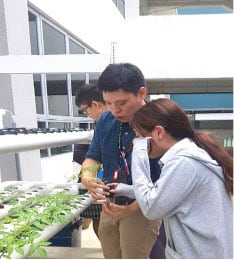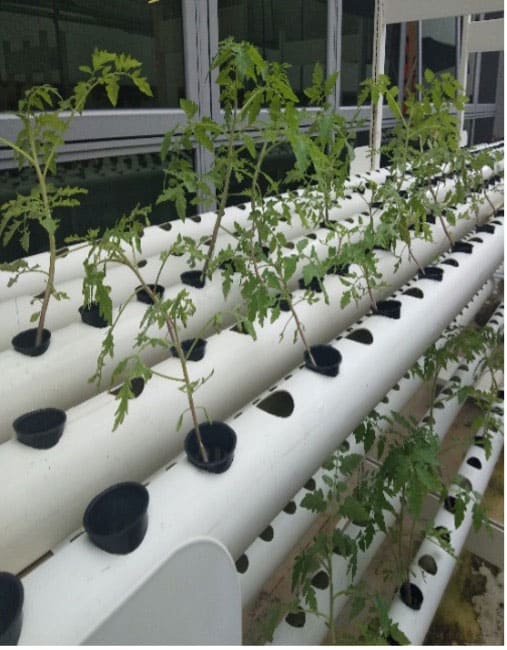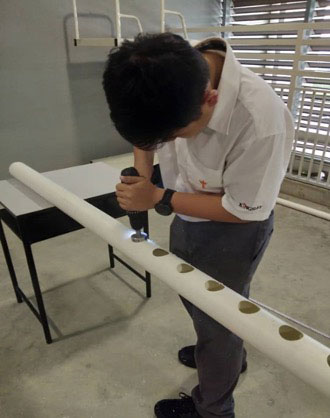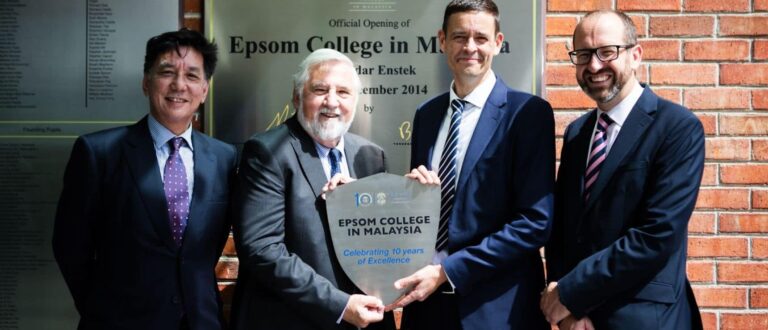As part of the STEAM ECA Science Club, secondary students from the school explored the world of Chemistry by observing causes and effects of adding different solid transition metal salts in an aqueous solution of sodium silicate. These contents will grow into fascinating chemical “plants”. The experiment is an exciting example of chemical self-organisation. The salts are first dissolved in sodium silicate solution to form metal ions which will react with the sodium silicate to form thin membranes of insoluble metal silicates. These living organisms’ growth turns into beautiful enchanting “chemical” crystals of all shapes, size and colours – looking like a crystalized garden!
In ML KIS, the study of Sciences starts from the students in Early Years to Year 12 (A Level). All classes ranged from studying of science in class lessons to activities and projects which offers all students the opportunities to have hands-on experiences.
For the early years, their science activities see them trooping out of the comfort of classrooms into the wide open fields for planting, observing of the environment and how the eco-system works. They work on their observation charts to map the growth of their seedlings and how plants need the natural elements to grow healthily. All children thus keep a green plant in their classroom.
The senior students have termly organic planting using the hydroponic system. Herbs planted are rosemary, basil, mint leaves and dill. These plants using the water system are carefully checked for clean water and sufficient nutrient to ensure they grow beautifully. These experiential learnings gave insights to the students on how to have a more sustainable future in the world of vegetation without having to plant using soil and processed fertilizing.
